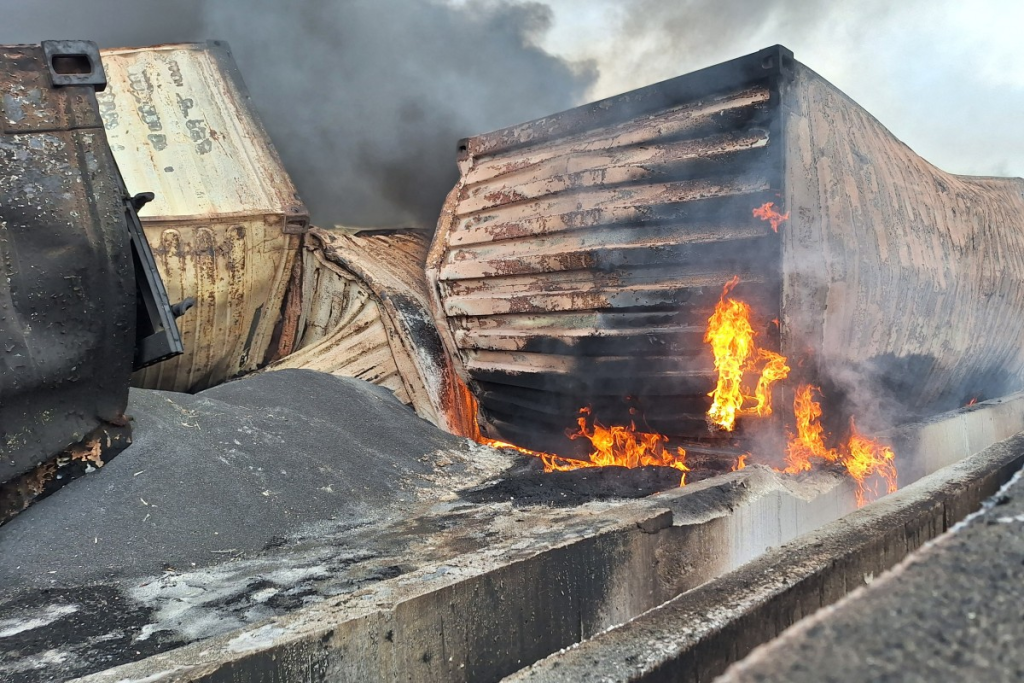Former Egyptian president Mohamed Morsi was buried in Cairo Tuesday, a day after he died following his collapse in court and nearly six years since his ouster by now President Abdel Fattah Al-Sisi, leaving the country in a leadership crisis as the incumbent plans perpetuity.
Here are key dates in Egypt since the Tahrir Square-led revolt known as the ‘January 25 revolution’ which drove Morsi’s predecessor Hosni Mubarak from power in February 2011.
Revolution
On January 25, 2011, thousands of Egyptians, inspired by the Tunisian revolt that toppled dictator Zine El Abidine Ben Ali, protest in Cairo and elsewhere in Egypt demanding longtime dictator Mubarak’s overthrow.
On February 11, after days of vast protests centred in Cairo’s Tahrir Square, Mubarak’s newly appointed vice president Omar Suleiman announces that the president has resigned and the army is in charge.
A crackdown on the protests has left at least 850 dead.

Islamist victory
Islamist parties win a majority of seats at parliamentary elections between November 2011 and January 2012.
On June 30, 2012, Morsi, a senior Muslim Brotherhood leader, wins 51.7 percent of the vote to become Egypt’s first civilian, democratically elected president. He is also the first Islamist to head the country.
Egypt’s military rulers dissolve parliament in June. In August, Morsi dismisses military chief Field Marshal Hussein Tantawi and replaces him with Sisi, in a purge of top brass.
Morsi ousted
On July 3, 2013, following massive protests against Morsi’s divisive rule, the military led by Sisi overthrows Morsi and detains him. Morsi denounces a coup and calls on his supporters to defend his legitimacy.
On August 14, police disperse two pro-Morsi protest camps in Cairo, killing about 700 people in clashes, according to official figures.
The government names the Muslim Brotherhood a “terrorist organisation” in December.

President Sisi
Sisi is elected president with 96.9 percent of the vote in May 2014. His election comes after the approval of a new constitution bolstering the military’s powers.
In late 2015 a new parliament is elected, packed with Sisi supporters.
Repression
Sisi presides over a fierce clampdown. Hundreds of suspected Islamists are sentenced to death or life in prison in mass trials slammed by rights groups.
Secular opposition activists are also jailed.
Local and international rights groups accuse the regime of torture, forced disappearances, summary executions and repression of dissent.
The authorities deny the accusations, pointing to the need for stability and the fight against terrorism.
Jihadist threat
The country also witnesses deadly attacks, perpetrated mainly by the Islamic State group, which kills hundreds of police officers and soldiers in attacks centred on the Sinai peninsula.
On October 31, 2015, a Russian airliner carrying tourists from an Egyptian beach resort explodes after taking off, killing all 224 people on board. IS says it had planted a bomb on the plane.
On November 24, 2017, a suspected IS attack on a mosque in the Sinai leaves more than 300 dead.
More than 100 die in attacks on Christians, also claimed by the group.
In February 2018, the army launches a vast “anti-terrorist” operation.
Backing for Sisi
In February 2015, Russian President Vladimir Putin travels to Cairo for the first time in a decade and signs a deal to build the first Egyptian nuclear power plant.
In March 2015, the Obama administration lifts a partial freeze on military assistance decided after Morsi’s overthrow.
King Salman of Saudi Arabia visits Egypt in April 2016.
In April 2017, US President Donald Trump praises Sisi as the Egyptian leader visits Washington. Sisi is hosted at the White House for a second time in April 2019.
In October 2018, Sisi visits Paris, where he receives strong support from President Emmanuel Macron, who in turn visits Egypt the following January.

Sisi boosted
In March 2018, Sisi is re-elected with 97.08 percent of the vote. His only opponent is one of his supporters.
In April 2019, a controversial constitutional revision allowing the extension of Sisi’s presidency and strengthening his powers is approved by referendum.
Morsi dies

On June 17, 2019, Morsi collapses in court during a retrial over charges of collaborating with foreign powers and militant groups.
He arrives at hospital dead, according to the attorney general’s office.
Rights groups say the Islamist was denied medical treatment in detention and demand an investigation.


 Trending
Trending 

